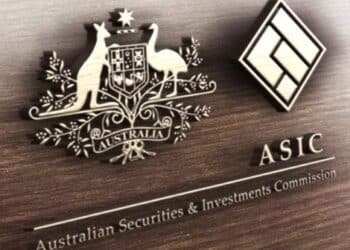There has been a lot of focus on ESG (environmental, social and governance) recently, from ASIC enforcements over greenwashing to debates over the burden it places on companies, but for Nanuk Asset Management chief investment officer Thomas King, the term itself is the issue.
“I’ve been out banging the drum recently, encouraging advisers to stop using the term completely, because I think a lot of the negative sentiment towards investment in areas that people are using that term to describe comes from the fact that the term doesn’t have a common meaning,” Mr King said.
“It’s just an acronym and it gets used very loosely to describe a whole series of different things that can be done together but aren’t all compatible and ultimately can’t be done well at the same time.
“Anyone dealing with clients who want to shape their investments by their values or want to ensure that their capital is allocated into particular things or not into other areas, those kinds of conversations and delivering those kinds of outcomes can happen without using an acronym that confuses everyone.”
Talking to clients in plain language terms, he said, is able to more precisely nail down what is important to each individual than a catch-all term.
“I think there’s a lot to be said for people trying to completely avoid the term ESG and … to talk about investing in alignment with values or not investing in companies doing bad things, or investing in companies that are delivering products and services that make the world more sustainable,” Mr King said.
“Or investing in companies that have low carbon emissions, or investing in companies with low transition risk or investing in companies with better governance structures for whatever reason they might want to do that. Or investing with managers who are using their position as managers and custodians of capital to influence change.
“These are all distinctive different things that clients might want managers or their capital to be doing. And there’s nothing wrong with that. In fact, the way legislation’s evolving, it seems pretty clear to me that beyond the phase of your code of conduct, you’ve got cases now in the superannuation industry that make it pretty clear that things like climate risk are risks that need to be considered.”
“There’s a really stark need at the moment for much more sensible conversation and people to stop just generalising everything under this term, which doesn’t help,” he added.
When it comes to greenwashing, Mr King explained that moving the conversation away from ESG and into a more focused discussion on specifics also helps remove the confusion that leads to consumers buying into greenwashed products.
“We’ve seen in recent years a lot of managers coming to the space with a lot of products that are just confusing. ASIC in Australia is doing, I think, the right thing in really focusing on a couple of things for the benefit of the industry and ultimately consumers — and that’s making sure that products are true to label as they should be,” he said.
“But not just that, making sure that they’re described in sufficient detail, that people know what a product should be expected to do and deliver, and that ultimately, products are aligned with what people are saying they’re doing.
“They’ve been pretty clear about that and it’s a good thing for the industry that resulted in quite a large number of actions taken by ASIC, some of them quite prominent and public, many of them not so widely publicised, but it’s caused a response from the industry, which I think is a good thing.”
To hear more from Tom King, tune in here.








About time. Using acronyms and initials is just plain lazy,and reduces effective communication. If someone can’t be bothered saying/writing “ethical” or “sustainable” or “making positive changes” etc, they are probably also too lazy to research, explain, listen and deal effectively with clients, customers and others.